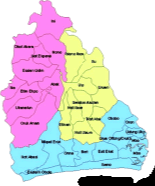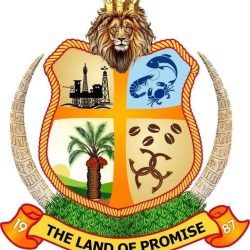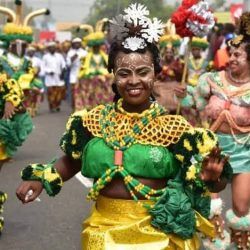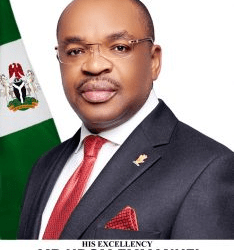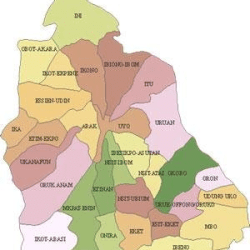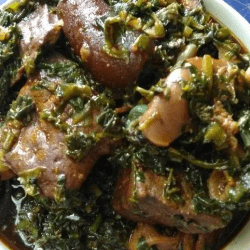Akwa Ibom state comprises several related tribes, ethnic groups. They include: Ibibio, Annang, Oron, Eket, Ibeno, Mbo, Okobo and the Andonis. They share a common ancestry and are reputed to be the first settlers in present day south eastern Nigeria.




History
Akwa Ibom State was created on September 23, 1987 from the former Cross River State. The creation of the state marked the climax of a long sustained struggle for a separate State by the people of the “Mainland” part of the former Cross River State.
Location
The State is located 4o 32’ and 5o 53’ North and Longitude 7o 25’ and 8o 25’ East.
Area
It covers an area of 8,412 square kilometres. The Atlantic Coastline stretches 129 kilometers from Oron in the East to Ikot Abasi in the West.
Population
The population of the State is about four million. The average population density is 463 inhabitants per square kilometres.
Capital City
The city of Uyo which has witnessed great transformation from a local government headquarters to the status befitting of a modern state capital.
Other Major Cities
The major cities in the state include: Ikot Ekpene, Eket, Abak, Oron, Ikot Abasi and Etinan.
Climate
Tropical climate marked by two distinct seasons: the dry season (November – March) and the rainy wet season (April – October). The wet season is usually interrupted by a short dry spell in August often referred to as “August Break.”
Temperature
The average temperature of the state ranges from 23 C to 31 C.
Vegetation
The state has three distinct vegetation zone: The saline water swamp forest, the fresh water swamp forest and the
rain forest.
Mineral Resources
The mineral resources in the state include: crude oil, natural gas, limestone, gold, salt, silver nitrate, glass, sand, kaolin.
More on Akwa Ibom

Akwa Ibom is a state in the South-South geopolitical zone of Nigeria, bordered by Cross River, Rivers, Abia, Ebonyi states and the Atlantic Ocean.
Akwa Ibom takes its name from the Qua Iboe River which bisects Akwa Ibom before flowing into the Bight of Bonny.
Akwa Ibom is known for its cultural diversity and language similarities. There are over 20 languages spoken in Akwa Ibom, but the major ones are Ibibio, Anaang, Efik, and Igbo.
Akwa Ibom has a tropical climate with two seasons: rainy and dry. The rainy season lasts from April to October and the dry season from November to March.
It is home to various tourist attractions such as the Ibom Plaza, the Ibeno Beach, the Stubb’s Creek Forest Reserve, the National Museum of Colonial History, and the Meridien Akwa Ibom golf course.
Akwa Ibom has a vibrant culture and celebrates various festivals such as the New Yam Festival, the Ekpe Masquerade Festival, the Leboku Festival, and the Christmas Carols Festival.
Located in the South Eastern part of the country, Akwa Ibom is a key member of Nigeria’s South South Zone, rich in crude oil, natural gas and a diversity of agricultural produce.


Over 5000 expatriates working for various organisations like Exxon Mobil, Shell, Chevron, Elf, the Aluminum Smelter Company, ALSCON, Forrestal, Reynold International and the University of Uyo have found a home here.

Capital City: Uyo
Other Major Cities: Eket, Ikot Ekpene, Abak, Ikot Abasi and Oron.
Ethnic Groups: Multi-ethnic: Ibibio, Anang, Oron, Eket, Ibeno, Mbo
Location: Latitude 4o 32’ and 5o53’ North and Longitude 7o25’ and 8o25 East.
Area: 8,412 square kilometers


Climate: Tropical climate marked by two distinct seasons; the dry season (November – March) and the wet season (April – October). The wet season is usually interrupted by a short dry spell in August.
Mean annual rainfall is 2,200mm in the north of the state and 3,500mm in the south of the state.
Sunshine is between 1,400 to 1,500 hours per year. Average temperature range from 23oC to 31oC.
Vegetation: Three easily distinguishable vegetation; the saline water swamp forest, the fresh water swamp forest and the rainforest.
Mineral Resources: Crude oil, natural gas, limestone, gold, salt, coal, silver nitrate, glass sand, kaolin.
The major industrial crop is the oil palm tree. The Akwa Ibom has the densest groves of oil palm in Nigeria. The Akwa Palm Industries PLC was set up in 1991 to harness the full potential of this crop.

The production of crude palm oil will allow for downstream industries which can refine the oil into vegetable oil, soaps, margarine, glycerin, candles, detergents and numerous other products. The kernel oil is used for the manufacture of high quality toilet soap. Bye product from the oil palm industries are used for the production of livestock feeds.
Arable Crops
Cassava
Yam
Cocoyam
Maize
Rice
Cowpea
Melon
Horticultural or Fruit Crops
Plantain
Banana
Pineapple
Pawpaw
Mango
African peas
Vegetable Crops
Leafy vegetable
Okro
Pepper
Tomatoes
Cash Crops
Oil palm
Coconut
Rubber
Cocoa
Raffia palm
Gmelina
Kola
Although Akwa Ibom is mineral-rich, agriculture is the bedrock of its economy. It employs about 70 percent of the state’s workforce. Most are engaged in subsistent farming. The industrial sector is small and is dominated by government owned companies. The private sector is active in the service areas, although a few industries are privately owned.
At inception, the state inherited a number of companies from Cross River State. These are:
- Sunshine Batteries, Essien Udim
- Peacock Paint, Etinam
- Quality Ceramic Industries, Itu
- Qua Steal Products Limited, Eket
- Asbestonit Industries, Oron
- Plasto – Crown Industries, Uyo
- International Biscuits Limited, Ikot Ekpene
- Champion Breweries, Uyo
- Pamil Industries, Abak

Most of the companies are ailing, becoming a drain on government. As part of the economic policies, these companies are to be revived and privatized. Government is diverting its interest in them in line with overall philosophy to focus on creating an enabling environment for private sector initiatives to flourish.
LGAs in Akwa Ibom State
The LGAs (Local Government Areas) in Akwa Ibom State are:
- Abak
- Eastern Obolo
- Eket
- Esit Eket
- Essien Udim
- Etim Ekpo
- Etinan
- Ibeno
- Ibesikpo Asutan
- Ibiono Ibom
- Ika
- Ikono
- Ikot Abasi
- Ikot Ekpene
- Ini
- Itu
- Mbo
- Mkpat Enin
- Nsit Atai
- Nsit Ibom
- Nsit Ubium
- Obot Akara
- Okobo
- Onna
- Oron
- Oruk Anam
- Udung Uko
- Ukanafun
- Uruan
- Urue-Offong/Oruko
- Uyo

